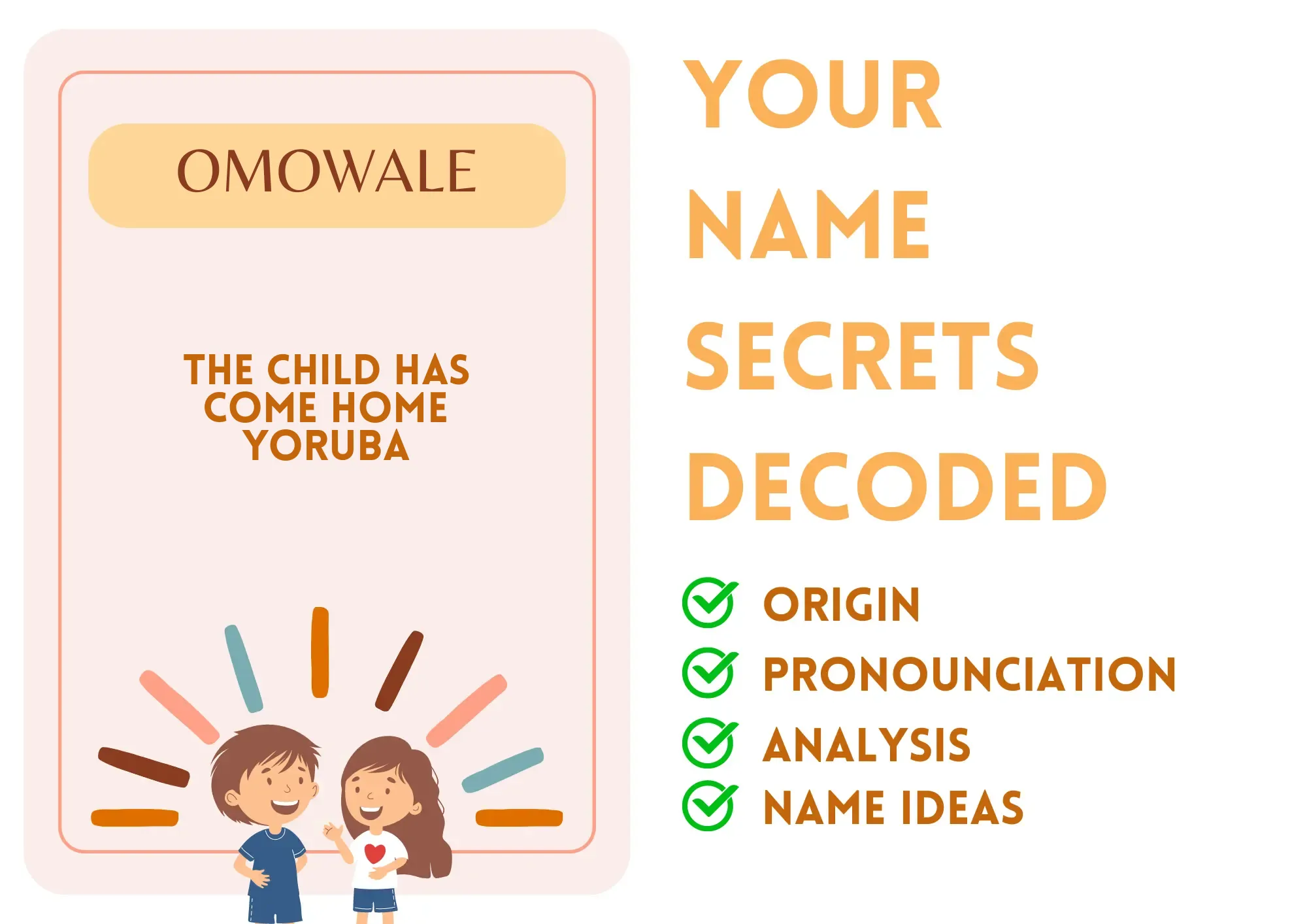
Omowale
Omowale is a culturally rich and meaningful name of African origin, particularly from the Yoruba ethnic group in Nigeria. It translates to 'the child has come home' or 'a child has returned home,' signifying a sense of belonging and community. Traditionally, Omowale is bestowed upon boys but can also be adopted as a unisex name.
This name not only emphasizes familial ties but is also significant in the context of spirituality and ancestral connections within Yoruba culture. The concept of returning home encapsulates themes of heritage, identity, and the importance of family.
Omowale is viewed positively, evoking feelings of warmth and interconnectedness. Its complexity may seem challenging for some, yet many appreciate its unique sound and profound significance. Common nicknames include Omo and Wale.
In contemporary culture, Omowale is less common but may appear in literature or storytelling emphasizing cultural narratives. The name resonates with parents aiming to instill strong cultural identity within their children.
Basic Information
Gender: Unisex
Sounds Like: oh-mo-WAH-lay
Pronunciation Explanation: The name has three syllables. The emphasis is on the second syllable 'WAH', pronounced like 'wah' in 'wah-wah'.
Summary and Meaning
Meaning: the child has come home (Yoruba)
Origin: The name Omowale has origins in the Yoruba language and culture of Nigeria, known for its rich traditions and deep connections to ancestry.
Usage: Omowale is traditionally used for males but is increasingly adopted as a unisex name, suitable for any gender.
Name Number (Chaldean)
Name Number (Pythagorean)
Religious and Cultural Significance
Religion: Traditional African
Background: In Yoruba culture, Omowale holds spiritual significance, reflecting the importance of family and ancestors among the Yoruba people.
Cultural Significance: Omowale is valued for its deep-rooted connection to tradition and the idea of returning to one’s roots. It symbolizes a reunion with familial ties and is often given to children celebrated for their connection to heritage.
Historical Significance: Historically, Omowale reflects the societal values of Yoruba culture, emphasizing ancestral reverence and the joy of family unity. It signifies a child's return to the familial fold, often after the passing of a loved one.
Popular Culture
Literature and Mythology: Though less prevalent in mainstream literature, Omowale may appear in folklore or stories emphasizing Yoruba culture and its principles.
Movies and Television: Characters named Omowale might feature in narratives focusing on African heritage, tradition, and family bonds, appearing in independent films or documentaries about African cultures.
Feelings and Perceptions
Perception: Omowale is usually perceived positively, representing family unity and strong cultural ties. It evokes feelings of belonging and respect for ancestry.
Positive Feelings: Warm, familial, connected, significant, reflective of heritage.
Negative Feelings: May be considered difficult to pronounce for some, leading to potential mispronunciations.
Practical Considerations
Ease of Writing and Calling: Omowale can be moderately challenging to write and pronounce for some, with eight letters and three syllables. However, its unique sound often draws interest and appreciation.
Common Typos and Misspellings: Omowala,Omoale,Omowaley
Common Nicknames: Omo,Wale
Compatibility Analysis
Famous Persons Named Omowale
No results found for Omowale.
Related Names
Similar Sounding Names:
Omolola,Omotola,Omar,Omeni